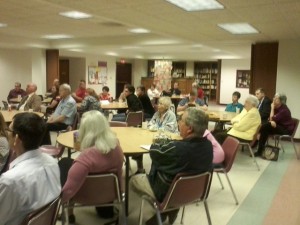 This is a special Sunday for me. Friday marked the 28th anniversary of my ordination as a priest in the Episcopal Church. It was on Sunday, June 23, 1991, that I celebrated my first mass. So I am grateful to you and to Fr. George for the privilege of an altar at which to celebrate the Holy Mysteries and a pulpit from which to preach the gospel on this, my anniversary Sunday.
This is a special Sunday for me. Friday marked the 28th anniversary of my ordination as a priest in the Episcopal Church. It was on Sunday, June 23, 1991, that I celebrated my first mass. So I am grateful to you and to Fr. George for the privilege of an altar at which to celebrate the Holy Mysteries and a pulpit from which to preach the gospel on this, my anniversary Sunday.
Now that I am retired, I am filling part of my time studying Irish. In the world of Irish studies, I am what is known as a foghlaimeoir, which is to say “an Irish learner.” The truth is that I have been a foghlaimeoir for over eleven years, but I have not yet progressed to the level of Gaeilgeoir, that is, “an Irish speaker.” Studying Irish is one of the most difficult things I’ve ever done; it is both fascinating and maddening, and I think that among the reasons for that are the cultural assumptions which underly the language.

 Lenten Journal, Day 34
Lenten Journal, Day 34 Lenten Journal, Day 24
Lenten Journal, Day 24 I’m not preaching this week, but if I were . . .
I’m not preaching this week, but if I were . . . Lenten Journal, Day 21
Lenten Journal, Day 21 Lenten Journal, Day 13
Lenten Journal, Day 13 Lenten Journal, Day 11 – Second Sunday in Lent
Lenten Journal, Day 11 – Second Sunday in Lent Lenten Journal, Day 9
Lenten Journal, Day 9 Lenten Journal, Day 8
Lenten Journal, Day 8

